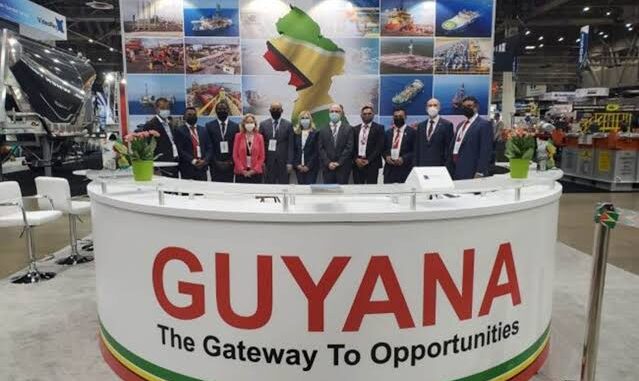
Tax Authorities in Guyana Face Resistance from Mob as They Attempt to Seize Luxury Cars Over Unpaid Taxes
Unpaid Taxes: Guyana’s Tax Authorities Struggle to Confiscate Luxury Cars Amidst Angry Mob Protests
Article:
In a recent and dramatic turn of events in Guyana, tax authorities have faced unexpected resistance while attempting to seize luxury vehicles from local businessmen who have failed to pay their taxes. The incident, which took place outside a high-end dealership in Georgetown, saw an irate mob of bystanders and supporters of the businessmen preventing the officials from executing their duties. The chaos underscores the growing tension between the government’s attempts to enforce tax laws and the entrenched interests of wealthy individuals in the region.
The tax authorities, backed by law enforcement officers, arrived at the location with the aim of confiscating a fleet of luxury cars that had been linked to businessmen accused of significant unpaid taxes. The businessmen in question reportedly owe millions of dollars in taxes, with no visible effort to resolve the matter in the months leading up to the raid. These luxury vehicles, ranging from high-end sports cars to lavish SUVs, had been flagged by the Guyana Revenue Authority (GRA) for their association with individuals who have long evaded fulfilling their tax obligations.
However, things took an unexpected turn when a crowd of angry individuals—many believed to be supporters of the businessmen—gathered in front of the cars to protest the seizure. According to eyewitnesses, the crowd became increasingly hostile, with some shouting obscenities at the tax officers while others physically blocked the vehicles. Tensions escalated as the mob began to encircle the GRA officers, preventing them from carrying out their legal mandate.
One eyewitness described the scene as chaotic: “It felt like an all-out confrontation. The businessmen’s supporters were incensed that their cars were being taken, and the authorities couldn’t do much because of the sheer number of people standing in the way.” Police officers were eventually called to manage the crowd, but their presence only intensified the mob’s anger.
The businessmen involved in the tax evasion are well-known figures in Guyana’s commercial circles. Their luxurious lifestyles, complete with fleets of high-end cars, have long been a point of contention among the public. The incident has fueled growing resentment over the perceived corruption within the country’s business elite, who are often viewed as manipulating the system to avoid paying taxes.
Government officials, however, have vowed to continue efforts to crack down on tax evasion, which has been a significant concern in Guyana, especially in the wake of the country’s burgeoning oil economy. Finance Minister Ashni Singh issued a statement expressing his disappointment at the mob’s interference. “We will not be deterred by intimidation. The law must be upheld, and those who seek to evade their responsibilities will be held accountable.”
Despite the disruption, the Guyana Revenue Authority has stated that they will revisit the situation soon and are considering alternative methods to seize the vehicles. Public outcry against the growing divide between the wealthy and the average citizen is intensifying, with many questioning whether the system is rigged in favor of the elite.
This clash between tax authorities and a mob of agitated citizens raises important questions about the effectiveness of enforcement in a society where wealth and power often appear to overshadow the law. For now, the battle between the Guyanese government and its wealthiest citizens over unpaid taxes remains unresolved, with the nation’s future fiscal policies hanging in the balance.
The incident is also a stark reminder of the tensions between the rich and poor in Guyana, a nation that continues to grapple with the complexities of rapid economic growth and social inequality. The authorities’ ability to regain control of the situation could determine the effectiveness of future tax reforms in the country.
Leave a Reply